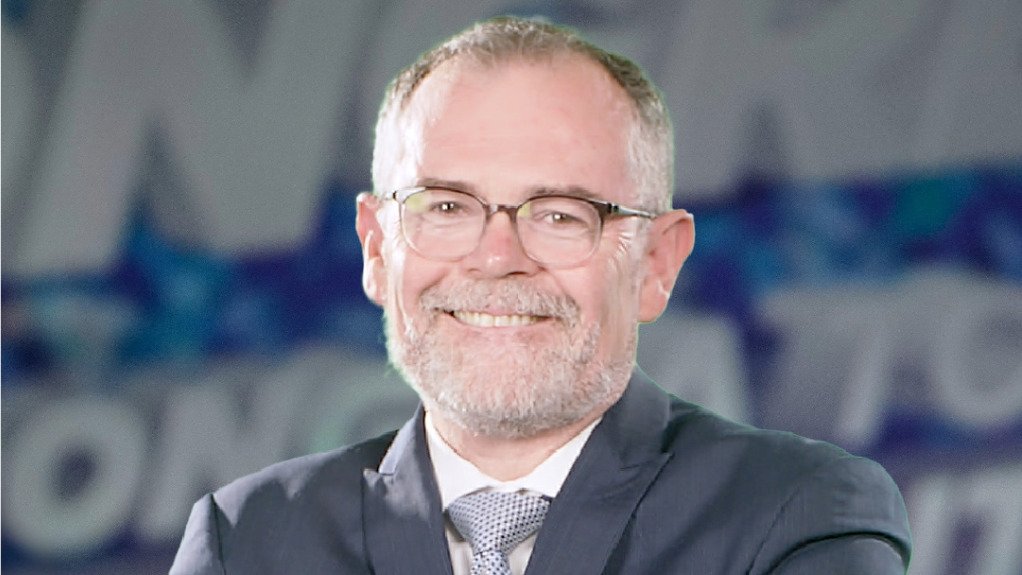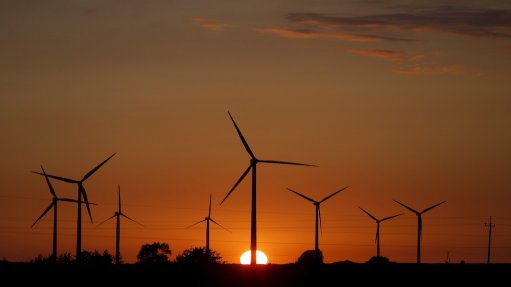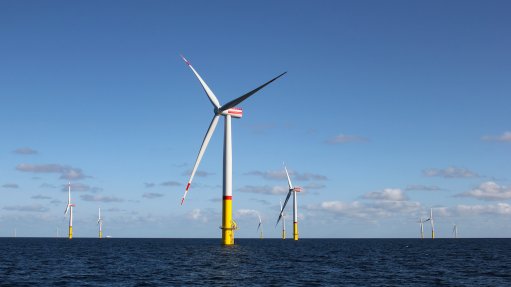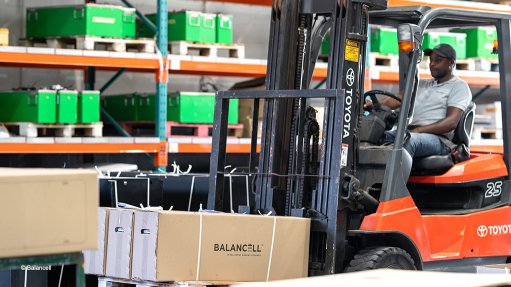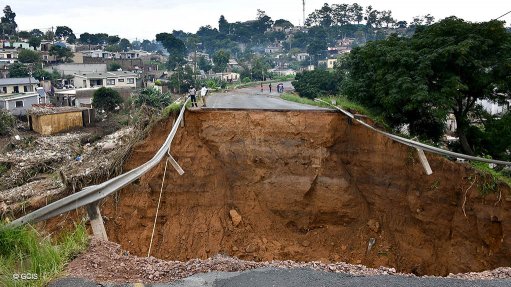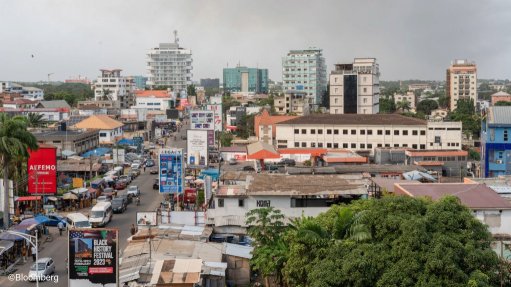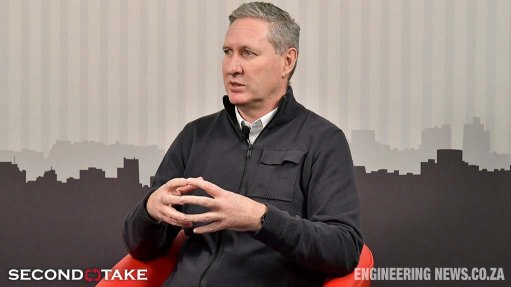George emphasises collective multilateral climate effort in MoCA speech
South Africa and most other African and developing countries are facing a very serious economic situation with pressing development challenges, such as high unemployment and poverty rates.
Southern Africa is among the regions most impacted by climate change owing to multiple factors, including heavy dependence on climate sensitive sectors, low adaptive capacity, poverty and underdevelopment, and limited access to finance and technology, said Forestry, Fisheries and the Environment Minister Dr Dion George in his speech at the Ministerial Meeting on Climate Action (MoCA) in Wuhan, China, on July 22.
"We cannot make our societies more sustainable and resilient, and avoid loss and minimise damage, without the appropriate scale of public finance that does not exacerbate the indebtedness of our countries, or without the support of the private sector," he said.
International support for just transitions is critical, and a technical assessment of options to finance these transitions is essential. Similarly, there is the need to shift financial flows away from carbon-intensive to renewable-energy sources, taking full account of divergent national circumstances and capacities.
"Such alignments must support just transitions in developing countries, and, in particular, innovative ways to finance the just transition pathways that do not result in unsustainable debt-to-GDP ratios and stunted economic growth," said George.
"Climate change is one of the greatest challenges of our generation. The climate crisis is adding another setback on our development path, and we appeal for international solidarity and support."
Therefore, the outcome of the UN Conference of the Parties 29 (COP 29), to be held in Azerbaijan in November, should be based on intensified efforts to unpack the quantum of resources required that will enable developing countries to respond to the calls to enhance collective climate ambition, and to achieve the ambitious conditional targets in their nationally determined contributions (NDCs) and national adaptation plans (NAPs), he said.
"It also remains critical for developed countries to take the lead, up to 2030, as per the Glasgow, Sharm el Sheikh and Dubai outcomes," he added.
The new collective quantified goal (NCQG) to be adopted at COP 29 should be a clear quantification of finance that reflects expected actions to be taken by developing countries in line with their NDCs including NAPs, low-emission development plans, national development plans and frameworks, and other relevant policy documents.
Such a goal should also be reflective of inclusive just transition pathways, in line with parties’ individual and nationally determined socio-economic development priorities, he added.
George said he would work with international partners and national stakeholders on practical, realistic and affordable ways to enhance South Africa's climate action, including through its next NDC commitment to the Paris Agreement.
In response to the call from UN secretary-general António Guterres for more mitigation ambition and building resilience of societies and economies, South Africa is developing its second NDC.
"Ambitious NDC goals in mitigation and adaptation will require ambitious support," he said.
South Africa remained firmly committed to contributing its fair share to addressing the global climate crisis, and the economic transition to a low-carbon future presented an unprecedented opportunity for transformative change, he added.
"However, we are faced with a number of transitions, including the energy transition – driven by changing economics and technology; a transport transition towards electric mobility; transitions in industry and agriculture; and transitions that are driven by climate change impacts in agriculture and other sectors," he highlighted.
Supporting just transition pathways and making financial flows consistent with these pathways will benefit South Africa by increasing access to investment flows tied to the global low-carbon shift.
Further, South Africa is clear that no one must be left behind and must ensure that workers and communities benefit from these transitions and are not its victims.
"We are, therefore, fully committed to the vision of the COP 28 UAE Consensus of all-of-economy and all-of-society just transition pathways that address both the international and national dimensions of climate justice and international equity," George noted.
Meanwhile, fair trade and reform of the global financial architecture were among the key international enablers, he said.
"South Africa engages in this context by ensuring that we safeguard our development gains and address our development challenges by making maximum use of the opportunities of these transitions while managing the risks.
"These include ensuring that we create jobs in the new sectors as we lose them in sectors such as coal; localise value chains for green technologies where economically feasible; beneficiate the critical mineral wealth of our land and benefit from it, unlike in our recent past when others were the key beneficiaries of South Africa’s mineral wealth; and also transform our agricultural, health and water systems to adapt to climate change."
South Africa's Just Energy Transition Implementation Plan sets out the scale of financing needed, at R1.5-trillion over the initial five years, to meet the country’s climate change mitigation targets as committed to under the United Nations Framework Convention on Climate Change, and ensure a just energy transition for affected regions, communities, employees and industries.
"We need access to scaled-up, new, additional and predictable, fit-for-purpose finance, specifically grant and concessional finance, that can be deployed effectively to create enabling environments for rapid investments by buying down risks and create new asset classes for clean investments that would allow for more significant mobilisation and leveraging of public and private finance," said George.
Comments
Announcements
What's On
Subscribe to improve your user experience...
Option 1 (equivalent of R125 a month):
Receive a weekly copy of Creamer Media's Engineering News & Mining Weekly magazine
(print copy for those in South Africa and e-magazine for those outside of South Africa)
Receive daily email newsletters
Access to full search results
Access archive of magazine back copies
Access to Projects in Progress
Access to ONE Research Report of your choice in PDF format
Option 2 (equivalent of R375 a month):
All benefits from Option 1
PLUS
Access to Creamer Media's Research Channel Africa for ALL Research Reports, in PDF format, on various industrial and mining sectors
including Electricity; Water; Energy Transition; Hydrogen; Roads, Rail and Ports; Coal; Gold; Platinum; Battery Metals; etc.
Already a subscriber?
Forgotten your password?
Receive weekly copy of Creamer Media's Engineering News & Mining Weekly magazine (print copy for those in South Africa and e-magazine for those outside of South Africa)
➕
Recieve daily email newsletters
➕
Access to full search results
➕
Access archive of magazine back copies
➕
Access to Projects in Progress
➕
Access to ONE Research Report of your choice in PDF format
RESEARCH CHANNEL AFRICA
R4500 (equivalent of R375 a month)
SUBSCRIBEAll benefits from Option 1
➕
Access to Creamer Media's Research Channel Africa for ALL Research Reports on various industrial and mining sectors, in PDF format, including on:
Electricity
➕
Water
➕
Energy Transition
➕
Hydrogen
➕
Roads, Rail and Ports
➕
Coal
➕
Gold
➕
Platinum
➕
Battery Metals
➕
etc.
Receive all benefits from Option 1 or Option 2 delivered to numerous people at your company
➕
Multiple User names and Passwords for simultaneous log-ins
➕
Intranet integration access to all in your organisation



